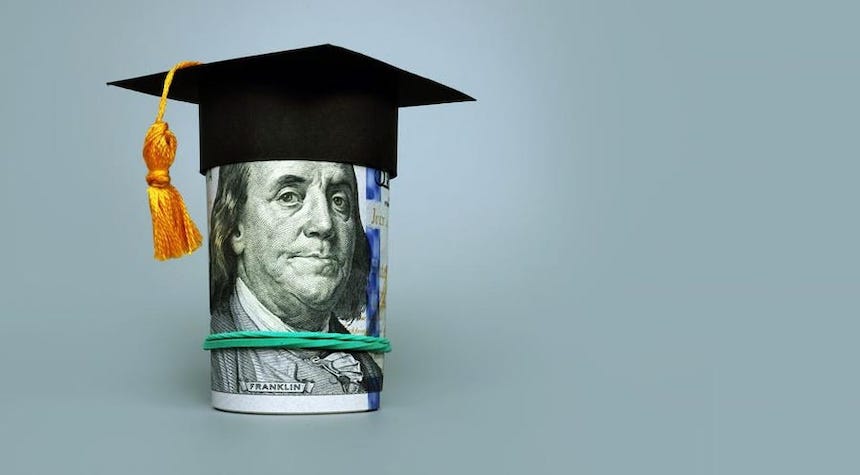For several months, the Biden administration has suggested that it would soon cancel significant student loan debts for more than 40 million Americans who have federal college loans.
The administration is currently facing multiple crises and low poll numbers. They will likely delay the announcement until closer to the fall elections. This is in the hope that it will increase turnout among recent college graduates and help Democrats avoid political Armageddon. It is difficult to say if this expectation is realistic given the current inflation rate, which could soon drive many Generation Z members back to their basements.
Other considerations are more important, including the following: Loan forgiveness would be illegal, immoral, and inequitable and weaken already-shaky state finances. It makes no sense.
Before I go into detail, it is important to mention that the Biden administration has placed a moratorium in March 2020 on interest charges on student-loan debts amounting to $1.6 trillion. This basically has said to borrowers that they will not be charged any interest if they do not make regular repayments. This is even though employers are struggling to fill 11 million jobs. Inflation has also made it more affordable to repay existing loans. A dollar borrowed one year ago can now be repaid today with a dollar that is real-worldly worth less than 92cs. A large number of other borrowers have also been informed that their debts have been canceled, including those who borrowed money from Corinthian Colleges.
It’s not like tens of thousands of college students or recent graduates have to choose between eating and paying off their student loans. This is not true.
However, my other concerns are real.
It Could Be Illegal
Although I am not a lawyer, it seems absurd that debt cancellation could be deemed lawful if challenged in court. The Federal Direct Loan Program was established by a Public Law 111-152 Act of Congress and signed by President Obama. The legislation does not give the President broad latitude to modify the program, such as eliminating loan repayments. If the president were to assume unilateral authority in this manner, he would act like King Louis XIV (“The State is I”) and not as the head of a government that follows the rule of law.
It’s Immoral and Unfair
Is it ethical to tell some borrowers that they must repay their loan at X percent interest while telling others that you’re not responsible? This seems particularly wrong considering that many of those who have to repay their loans will live comfortably, while others who are told not to (think lawyers, MBAs, and other highly-paid professionals) will be living frugally. Is the new definition fair? Is modern American society willing to reward those who disregard their legal obligations?
It’s Financially Irresponsible
I estimate that in the 28 months that have passed since the beginning of the moratorium on student loan interest payments, federal revenue has dropped by more than $200B. This is at a time when the federal debt has risen to $30.5 trillion. A modest program to forgive student loans would likely result in $400 billion-500 billion more in lost revenue. These debts must be paid someday unless a future administration decides not to default on its obligations or reduce their size through deliberate inflation.
It’s Absurd
Is it sensible to burden hundreds of millions of Americans, many of them living paycheck to paycheck, who didn’t have the chance to go to college or choose not to, to bail out student loan borrowers, many of which are financially well off, with some earning six figures? It is sensible to subsidize higher education. This system has seen its costs rise for decades and failed to graduate the majority of bachelor’s degree candidates in six years. I don’t know about you, but it doesn’t make sense to me.
It is not about helping students. Then, why would the administration do such a thing?
One plausible answer is that higher education is an ally of progressive elements within the Democratic Party. It provides substantial financial support, ideas, and personnel. It’s a way for the government to buy votes and pay off its loyal supporters in academic and activist communities.


